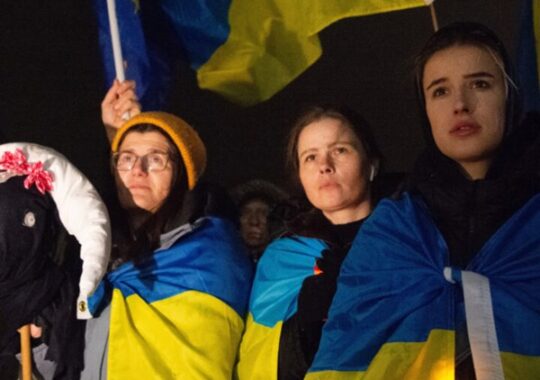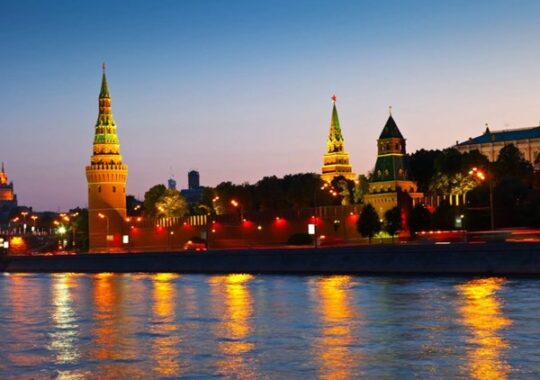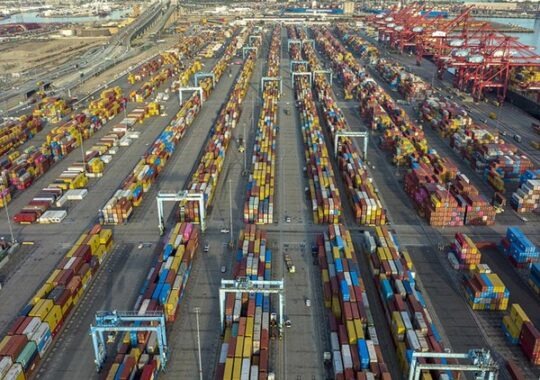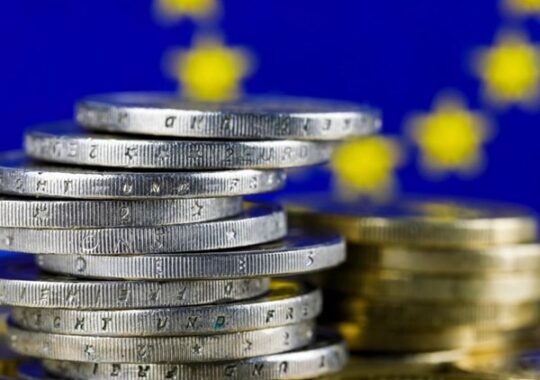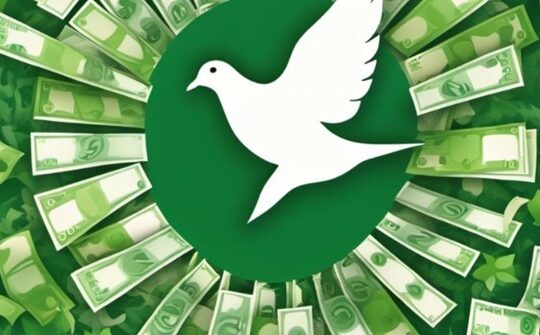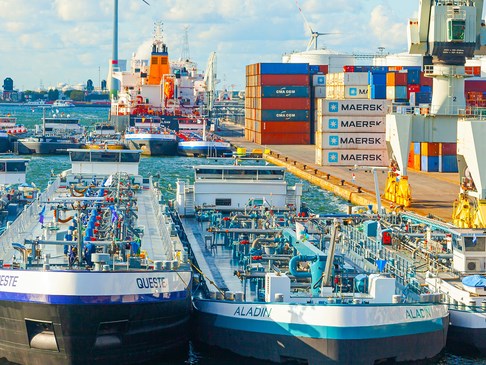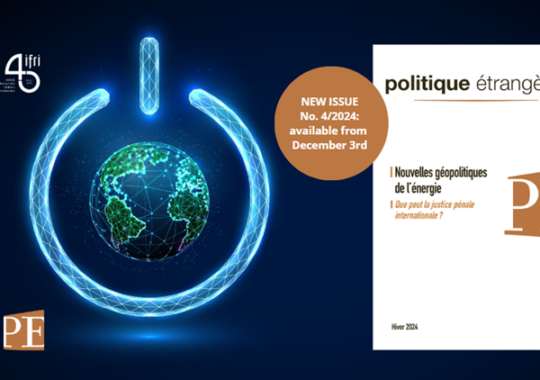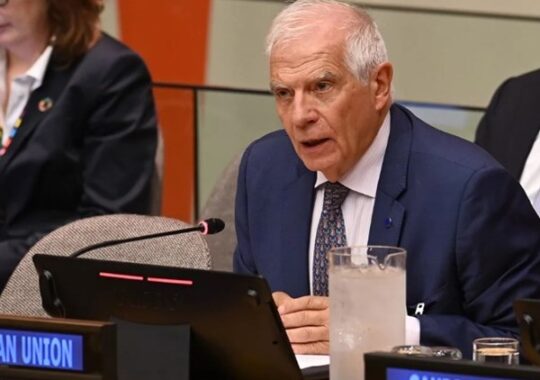Issue 12 – December 2024
The Finder | Our monthly Insights | Issue 12 – December, 2024
As 2024 draws to a close, several analyses have attempted to identify the crucial challenges that 2025 will bring about. One of the most comprehensive is a recent publication by Dambisa Moyo, who identifies eight major challenges that could hamper global economic growth and prosperity. Rising geopolitical tensions, however, have arguably emerged as the most important source of the current international instability. Indeed, global cooperation has steadily declined over the past 50 years, as superpowers, regional blocs and nation states alike have increasingly adopted a zero-sum approach to both economic and diplomatic relations.
This shift is fostering technological rivalry, along with economic and political fragmentation, while reinforcing the narrative that views economic regionalisation and tariffs not as temporary buffers, but rather as potential remedies to the current state of global affairs and, by extension, European affairs. More specifically, on the issue of economic prosperity, September’s Economic Forum Chief Economists Outlook was blunt: “When it comes to the prospects for a new growth agenda, greater political consensus and international cooperation will be essential to balance the quality and quantity of growth”.
If, on the one hand, the arguments against the “myth of deglobalisation” are still present in both the academic and public debate, on the other hand, the question of the interrelation between economic stability, conflict resolution and global prosperity is often set aside being considered unfit to deal with an increasingly complex and tense global arena. In this context, resource scarcity, the green transition and high energy prices have become as pivotal as Europe’s geopolitical future. Indeed, while technological advances have traditionally alleviated such scarcities, current geopolitical instability and economic fragmentation, if not properly handled, are likely to worsen the current international setting and the future of the European Union itself.
In light of the upcoming US President Donald Trump’s inauguration on the 25th of January 2025, the European Council convened EU leaders yesterday to discuss several key issues. The meeting primarily focused on exploring potential negotiations between Ukraine and Russia in the wake of Trump’s call for a ceasefire. Additionally, the agenda included establishing a strategic framework for EU-US relations, with special emphasis on security concerns and the cultivation of a broader network of global partners, particularly in the context of economic relations. It is evident that Europe has adopted a reserved stance towards the new US Administration, with special regard to trade, while the ongoing political deadlock in France and the upcoming elections in Germany are creating a double trouble burden of difficulty, beyond economic performances.
Notwithstanding this setting, Martin Wolf has recently argued in an FT opinion piece that, despite being confronted with huge challenges, the EU can build on its great historic successes. Indeed, according to the commentator “the EU has, after all, managed to enlarge and extend its union over almost seven decades”. However, he also added that “the survival of a Europe whole, free and fragile depends on whether Europeans have the bravery and the wisdom to rise to the challenges of today’s era”.
On the same note, but focusing more on a possible, more offensive strategy, Carl Bildt noted that the term “economic security” has gained currency in Brussels in recent years, driven by a mix of influence from Washington and the EU’s own protectionist tendencies. However, as in sport, focusing on defence alone rarely leads to victory. The economic security agenda may help mitigate decline, but may not turn the tide. According to Carl Bildt, Europe must instead adopt a bold, proactive strategy.
Regarding yesterday’s European Summit, EU leaders pledged to intensify support for the war-torn Ukraine and affirmed the principle that Kyiv must be involved in all decisions about its future, including defining victory. However, despite the promising declarations, the Brussels summit failed to deliver tangible commitments notwithstanding the fact that the situation on the battlefield is continuing to deteriorate. In addition, whilst earlier this week Slovak PM Fico excluded that Ukraine could be invited to join NATO, the EU High Representative Kaja Kallas cautioned that Ukraine’s current struggles do not automatically imply that the country should be pressured into swift negotiations with Moscow to bring the war to an end.
Against this backdrop, it is worth highlighting that an ECFR Commentary by Marie Dumoulin and Camille Grand addressed the question of establishing a secure and stable Ukraine and safeguarding Europe’s long-term security interests by emphasising that it would primarily depend on Ukraine entering negotiations from a position of strength. Over the next few months, they argued in late November, Europe should focus on bolstering Ukraine’s battlefield standing, which will shape Kyiv’s leverage when talks, potentially starting as early as 2025, commence. Current support for Ukraine should be viewed as an investment in the future of Europe’s security, they concluded. Nevertheless, for the time being, the EU has still not been able to strike a balance between securing peace in Ukraine and protecting its own interests.
Looking on the “bright side” of the possibility of a peace agreement between Ukraine and Russia, a research from the Hague Institute for Strategic Studies identified, back in 2022, the human, economic and military costs of a war as one of the most important factors for conflict to come to an end. On the question of economic (and military) costs, an SWP Commentary remarked that Russia is poised to sharply increase its military spending again in 2025, whilst the costs of both weapon production and soldier recruitment are rising steadily. Over the last two years, high government demand has sparked a wartime economic boom in certain sectors. This process has led to higher incomes and renewed optimism about the economy. However, due to labour shortages and the effects of Western sanctions, economic growth has stagnated this year, and inflation remains persistently high. For these reasons, Janis Kluge argues that “amid the deteriorating outlook for the Russian economy in 2025, the country is more vulnerable to economic crises”.
As reported by the Financial Times, EU countries are discussing a €500bn joint fund for common defence projects and arms procurement, tapping bond markets to boost spending in anticipation of Donald Trump’s White House return. Whereas, shortly before, a Finabel Publication examined the question of air defence, notably one of the most important parts of a comprehensive defence strategy. The authors examined the technological, political and industrial challenges involved in creating an integrated air defence system for Europe as a result of the rising threats posed by hypersonic missiles, drones and electronic warfare. The European Sky Shield Initiative (ESSI) represents a key move towards tackling Europe’s vulnerabilities, but it encounters major hurdles such as fragmented procurement processes and differing national priorities, they underscored. The publication also looked at ESSI’s potential, its limitations, and the broader necessity for a cohesive European strategy in air defence.
On the issue of trade and tariffs, the EU is, at present, structurally forced to wait for the new US Administration to make its moves. As a result, no real position or institutional initiative has been taken, while the European public debate has been very intense and cautious about the possible consequences of an increasingly protectionist US approach, as President-elect Trump has warned of raising US tariffs to 60% on imports from China and to 10-20% on goods from other trading partners, including the European Union. Such actions would violate US commitments to the World Trade Organization and reverse the significant trade liberalisation achieved over the past 80 years, thus potentially causing significant damage not only the global economy, but also to the US itself.
Indeed, a Project Syndicate Commentary by Takatoshi Ito emphasised that the main aim of US tariffs on China has been to curb its growth as a global power. However, if President-elect Trump does not adopt a cautious stance on tariffs for other countries, it will be the US itself facing limitations, both in economic vitality and global influence, he argued. The latest news on the Mercosur bloc evolving position seemingly more willing to engage with further negotiations with third parties, including the European Union, is a sign of the significance of the above-mentioned forecast.
However, the question of Europe’s growth and competitiveness does not only concern the external aspects of its policies, but also the internal ones, in particular public investments. On this matter, a Clingendael Policy Brief by Adrian Schout argued that EU spending is facing challenges, with errors remaining persistently high. Several underlying issues with the EU budget’s quality have been identified, but there is limited understanding of how member states plan and execute public investments. Additionally, little has been done to ensure independent evaluations of projects. National systems for public investment differ significantly and have never been thoroughly analysed or described. Trust in these systems will become even more crucial if member states are given greater flexibility in investment decisions, he explained. The author recommended EU policymakers to include in EU budget negotiations a process for benchmarking the mechanisms each member state uses to select national and EU investment projects, as well-established national investment systems are essential for ensuring EU added value.
On the issues of green transition, central banking and monetary policies, a CEPS Publication by Anna Zech stated that the European Central Bank is a leader in addressing climate change risks, but these concerns extend globally. The author explained that, over the past decade, central banks and financial supervisors have collaborated to develop a shared research agenda. However, local policies vary significantly, with green central banking largely focused on prudential policies for financial stability. While promotional monetary measures remain a topic of debate, she pointed out that the adoption of such measures depends on legal frameworks and political context. The ECB has prioritised understanding climate risks through data collection and new modelling techniques, emphasising the importance of this type of research for maintaining financial and price stability. This analysis may give further perspective to the decision of the ECB to further trim interest rates.
Going back to the interrelation between internal and external policies, a CER Policy Brief by Elisabetta Cornago and Aslak Berg on the lessons learnt from the transitional phase of the Carbon Border Adjustment Mechanism (CBAM) explained that the EU imposes a carbon price on its heavy industries through the Emissions Trading System (EU ETS). To prevent carbon leakage, the EU has largely exempted its heavy industries from this carbon price. However, the introduction of the CBAM alters this approach by applying carbon pricing to both domestic production and foreign producers selling in the EU, thus creating a more level playing field. The CBAM targets imports of specific goods, including iron and steel, cement, aluminium, fertilisers, electricity and hydrogen. The authors also remarked that the CBAM is a climate policy with significant trade consequences. Its hybrid nature has caused frustration among many of the EU’s trade partners, who argue that it is unfair. They claim that the CBAM favours countries that adopt carbon pricing over those using other decarbonisation strategies. Additionally, it places a heavier financial burden on producers with more carbon-intensive methods, which are often based in developing countries. In response, some nations, including China and India, have threatened to challenge the CBAM at WTO level.
Beyond trade, another relevant question analysts and pundits insist in advocating for is the preservation and credibility of international institutions as a means to foster an effective multipolar international system which promotes coordination both in geopolitical and economic terms. On these questions, in light of the severe floods in Valencia and with the organisation of COP29 in Baku, IFRI highlighted that climate change is compelling to reassess the speed and obstacles of the energy transition. Within this connection, the latest IFRI Issue of Politique Etrangère titled “The New Geopolitics of Energy” explored two main issues: the challenges of transitioning away from oil and gas in the Gulf states, and the progress of the European Union’s response to Russia’s gas dominance. It also questioned the alignment of European and US strategies on energy, as well as the future role of nuclear and renewable energy. Additionally, it discusses the struggle of multilateralism, particularly regarding the International Criminal Court (ICC), which has made significant progress in prosecuting serious crimes in Ukraine and Gaza. However, the future of the ICC remains uncertain, as it depends on whether national governments will fully support its work or leave it as a symbolic institution. Both international climate negotiations and criminal prosecutions face difficulties in asserting multilateralism within existing legal frameworks.
On a more specific note on Europe, an ECDPM Brief noted that the EU’s response to Israel’s actions in the Middle East highlights inconsistency in its approach to international humanitarian law. While it quickly and clearly condemned war crimes by Hamas on the 7th of October 2023 and by Russia in Ukraine, its reaction to Israeli war crimes, now recognised by international courts, has been ambiguous. As the humanitarian crisis in Gaza worsens, this indecisive diplomatic stance undermines the EU’s commitment to a rules-based international order. It also raises questions about the consistency in its application of humanitarian law across different geopolitical situations. The EU’s selective condemnation risks damaging its diplomatic credibility, especially in the Middle East, Northern Africa and the broader Global South.
This editorial is authored by Massimiliano Gobbato, Communications Director. Contributions by PubAffairs Communications Team’s Nicole Finucci, Kristina Vilenica and Jacopo Bosica to the drafting of ‘The Finder’ are gratefully acknowledged.
From our Editorial Partners
Staying power: Securing peace in Ukraine while balancing European interests | European Council on Foreign Relations (ECFR)
European governments’ hesitation to pursue strategic security goals in Ukraine risks leaving them absent from peace negotiations, undermining both Kyiv’s position and Europe’s role in shaping a stable European security order.
The Russian economy at a turning point | German Institute for International and Security Affairs (SWP)
Russia plans to significantly step up its military spending once again in 2025. Both the production of weapons and the recruitment of soldiers are becoming increasingly expensive. Over the past two years, strong government demand has triggered a war boom in parts of the Russian economy. Incomes have risen and there is new optimism about the economy. However, owing to labour shortages and the impact of Western sanctions, economic growth has stalled this year, while inflation has remained stubbornly elevated.
Securing the sky: Challenges to building a European integrated air and missile defence system | Finabel
This paper examines the prospects for a European Air Defence Shield, focusing on the technological, political and industrial challenges in creating an Integrated Air Defence (IADS). The urgency for a unified system is underscored by Russia’s war of aggression and the growing threats from hypersonic missiles, drones and electronic warfare.
Trump’s tariffs will backfire | Project Syndicate
The apparent goal of US tariffs targeting China has always been to contain China’s rise as a global power. But unless Trump takes a prudent approach to tariffs on imports from the rest of the world, it is the US that will be contained, in terms of both economic dynamism and global influence.
The EU budget and the national capacity to investment | Clingendael
Not all is well with EU spending. Errors in EU spending remain persistently high, and the quality of the results is questionable. Several root causes of the mediocre quality of the EU budget have been identified. However, little is known about how member states plan and implement public investments, and little effort has been made to ensure independent assessments of projects.
From idea(s) to action: the why, how and what (now) of green central banking | Centre for European Policy Studies (CEPS)
The past few years have seen climate change concerns take centre stage in EU politics, culminating in the 2020 Green Deal. Although fiscal policy is at the heart of this discussion, the debate now extends to central banking and monetary policy. While the European Central Bank (ECB) is among the leaders in the field, these concerns resonate beyond Europe.
Learning from CBAM’s transitional phase: Early impacts on trade and climate efforts | Centre for European Reform (CER)
The EU applies a carbon price to its heavy industry through its Emissions Trading System (EU ETS). To prevent carbon leakage – the flight of carbon-intensive industry away from the EU and towards countries with looser environmental regulation – the EU so far has opted to largely exempt its heavy industry from the ETS carbon price.
The new geopolitics of energy | Institut français des relations internationales (Ifri)
Following the dramatic floods in Valencia, and as COP29 opens in Baku, climate change is forcing us to closely reexamine the pace—and the stumbling blocks—of the energy transition.
The cost of Europe’s divisions in the Middle East | ECDPM
The authors of this brief argue that the EU’s failure to uphold international humanitarian law in Gaza and Lebanon – contrasting sharply with its proclaimed values, commitments and response to Russia’s war against Ukraine – will undermine its efforts to build strategic, long-term partnerships with the rest of the world.


